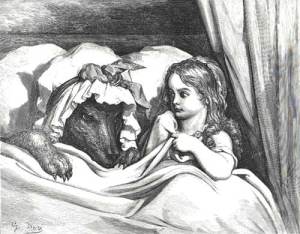 ‘The Company of Wolves’: Sociality, Animality, and Subjectivity in Literary and Cultural Narratives — Werewolves, Shapeshifters, and Feral Humans
‘The Company of Wolves’: Sociality, Animality, and Subjectivity in Literary and Cultural Narratives — Werewolves, Shapeshifters, and Feral Humans
Conference, University of Hertfordshire, Sept 3rd-5th 2015: Call for Papers and Panels
Wolves have long been the archetypal enemy of human company, preying on the unguarded boundaries of civilisation, threatening the pastoral of ideal sociality and figuring as sexual predators. Yet, in their way, with their complex pack interactions, they have served as a model for society. Lately, this ancient enemy has been rehabilitated and reappraised, and rewilding projects have attempted to admit them more closely into our lives. Our company with wolves has inspired fiction from Ovid, through Perrault and the Grimms’ narrators, to Bram Stoker and Kipling; and, more recently, to Angela Carter, Neil Jordan, Anne Rice, Marcus Sedgwick and Glen Duncan.
The Open Graves, Open Minds Project was initiated in 2010 with the Vampires and the Undead in Modern Culture conference and reconvened for the Bram Stoker Centenary Symposium in 2012. We turn our attention now to creatures not strictly undead but which haunt the peripheries of the vampire— werewolves and shapeshifters. Such beings have served in narrative fiction to question what humanity is; weres tend to reveal the complex affinities and differences between our existence as linguistic, social subjects and our physiological continuity with other animals. They also draw our attention to questions of hierarchy and sexuality, to the instinctive, and to what extent our conceptions of these are ideological.
Werewolves, along with vampires, have recently become humanised, even romanticised, as identity politics became mainstream and the Other assimilated. The ancient paradigm of Beauty and the Beast lives on in paranormal romance. And just as the vampire figure both conditions the shape of the subgenres it dwells in and draws other genres into its sphere, so fictions about werewolves, wild humans, and human-animal relationships also invoke questions of genre and intertextuality. Thus, we are also interested in other narratives and discourses such as beast fables, taxonomies, human metamorphoses, and stories of feral children and those raised by animals which question the boundaries between animal and human.
Amidst concerns about our relationship with nature, in a culture informed by Romanticism and a post-Enlightenment doubt about the centrality of humanity, contemporary fictions often turn to the animal, and to transitions between animal and human (particularly the werewolf and kindred figures) to interrogate what is special about our species. In her werewolf paranormal romance, Shiver, the YA author Maggie Stiefvater quotes Rilke: ‘even the most clever of animals see that we are not surely at home in our interpreted world’. This perhaps captures our amphibious nature and raises the kind of questions we are interested in.
The conference will explore human social existence and its animal substrate, and the intersection between the human and the wolfishly bestial as expressed in narrative media from a variety of epochs and cultures. It will provide an interdisciplinary forum for the development of innovative and creative research and examine the cultural significance of these themes in all their various manifestations. As with the initial OGOM conference, from which emerged a book and a special issue journal, there will be the opportunity for delegates’ presentations to be published.
The conference organising committee invites proposals for panels and individual papers. Possible topics and approaches may include (but are not limited to) the following:
* Werewolves, lycanthropy, and shapeshifters
* Feral and wild children
* Language, culture, and nature
* Instinct and agency
* Animal studies and humanist perspectives
* Phenomenology and the philosophy of language, mind, and body
* Animality and sociality from Hobbes through Rousseau to Darwin
* Narratives of the Grimms, Perrault, Kipling, Angela Carter, Neil Jordan, Anne Rice, Maggie Stiefvater, Glen Duncan, Marcus Sedgwick
* Genre, intertextuality, and narratology
* Young Adult and children’s fiction
* Urban fantasy and paranormal romance
* TV, film, and other media
* Folklore and anthropology
* Fables, fabliaux, and fantasy
* The Gothic, fairy tale, and myth
* Sexuality and romance
* Species, ‘race’, identity, and taxonomy
Abstracts (200-300 words) for twenty-minute papers or proposals for two-hour panels should be submitted by 31st March 2015 as an email attachment in MS Word document format to all of the following: Dr Sam George, s.george@herts.ac.uk; Dr Bill Hughes, bill.enlightenment@gmail.com; Kaja Franck, k.a.franck@googlemail.com
Please use your surname as the document title. The abstract should be sent in the fol-lowing format: (1) Title (2) Presenter(s) (3) Institutional affiliation (4) Email (5) Abstract. Panel proposals should include (1) Title of the panel (2) Name and contact information of the chair (3) Abstracts of the presenters. Presenters will be notified of acceptance by April 2015
The programme features Neil Jordan and plenary talks from Sir Christopher Frayling on ‘Angela Carter’, Dr Catherine Spooner on ‘Wearing the Wolf’, Dr Stacey Abbott on ‘The Sound of the Cinematic Werewolf’, Dr Sam George on ‘Wolf Children’ and Dr Bill Hughes on ‘Werewolves and Paranormal Romance’. There will be contributions from novelists Marcus Sedgwick and Glen Duncan (tbc) together with special guests. OGOM PhD students, Kaja Franck and Matt Beresford, will present papers on their current research involving werewolves. Delegates will have the opportunity to visit unique places associated with our theme, and to actually ‘walk with wolves’.
For more information, contact Dr Sam George at s.george@herts.ac.uk.
The conference is organised by the University of Hertfordshire, UK http://www.herts.ac.uk.
Click here to see details of the Open Graves, Open Minds book
Our website is at: http://www.opengravesopenminds.com and our blog, with updates on the conference and project, is at:openmindsopengraves.wordpress.com
For more information, contact Dr Sam George at s.george@herts.ac.uk.
The conference is organised by the University of Hertfordshire, UK http://www.herts.ac.uk.





There are no responses yet